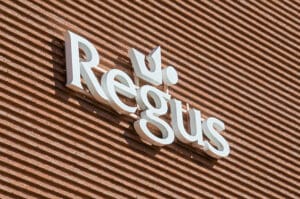<?xml encoding=”utf-8″ ?????????>
Mark Dixon, the founder and chief executive of IWG, has sold a substantial stake in the serviced offices company, amounting to £68.5 million, to repay a bank loan. Despite the sale, Dixon, 64, still retains a 25.2% share in the company.
Dixon disposed of 35 million shares at just under 196p each through Estorn Limited, his wholly-owned investment vehicle. The shares were pledged as collateral for a loan from Deutsche Bank taken in December, the specifics of which were not disclosed.
The sale, executed by IWG’s largest shareholder, caused a stir among investors, leading to a significant drop in IWG’s share price. Shares fell by 14¼p, or 6.9%, to 192¾p during afternoon trading, marking their worst performance since March of the previous year.
Leveraging shares as collateral is a common practice among wealthy entrepreneurs. High-profile examples include Elon Musk, who has used Tesla shares for personal loans, Larry Ellison of Oracle, and Adam Neumann, co-founder of WeWork, a rival of IWG. Previously, Dixon had pledged shares in Regus, IWG’s predecessor, for a £7.7 million loan from Merrill Lynch, repaid in June 2009.
Dixon founded IWG in 1989, starting with an office in Brussels to cater to executives needing temporary office space. The company has since expanded to manage 3,500 offices across 120 countries. Post-pandemic, Dixon has shifted IWG towards a “capital-light” model, forming partnerships with landlords to manage office spaces rather than owning or leasing them directly. This approach mirrors the strategy of Marriott, which manages rather than owns hotels.
Over the years, Dixon has sold hundreds of millions of pounds’ worth of IWG shares, including a £27.5 million sale in 2005 to settle a divorce. After the latest sale, Dixon’s remaining stake in IWG is valued at approximately £490 million. The most recent Sunday Times Rich List estimated Dixon’s wealth at £923 million, ranking him as the 177th richest person in Britain.
